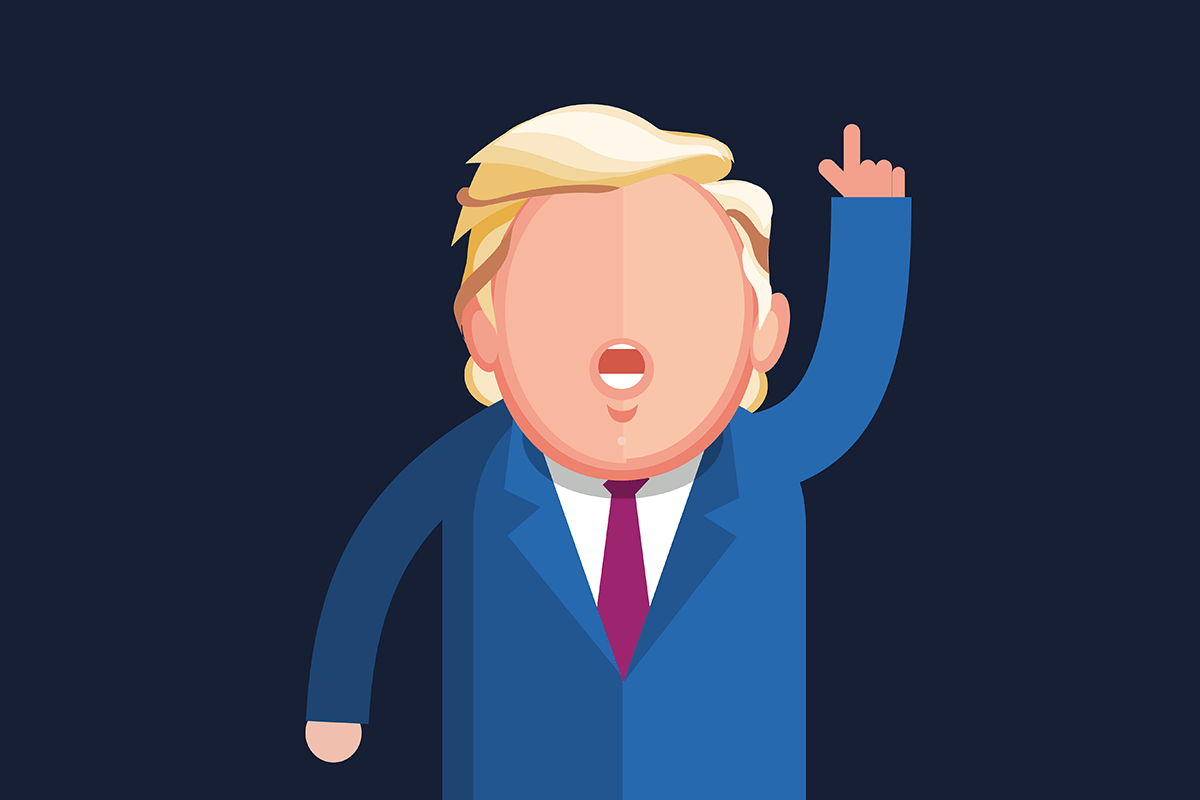
Time for responsibility
When our democracies are succumbing to the threat of digital manipulation, social networks should be held co-responsible for the spreading of lie campaigns, writes Einar Hålien. He is the co-author of a Schibsted report on how to handle these networks.
The social networks should be held co-responsible for the spreading of lie campaigns and instigations because our democracies are succumbing under the weight of digital manipulation writes Einar Hålien. He is the co-author of a report about the Schibsted view on how to handle these networks.
“Words and pictures are powerful weapons. Do not abuse them!” So it says in the end of the Be Careful charter, which are the 0wn ethical rules set up by the Norwegian media. If you transfer them to the global social networks you could say that they are distributing weapons for free to everybody who wants them but decline to shoulder any responsibility if someone gets hurt.
Would there have been a different president of the United States if millions of Americans had not been lied to and manipulated through social networks in 2016? Would there have been a majority in Great Britain for remaining in the EU?
Was the outcome in the Norwegian local elections this passed fall affected by manipulations? Nobody knows the answer to these questions but the mere fact that they are raised is detrimental to the trust in democracy and in the democratic institutions. Politicians and public servants are targeted in the campaign of lies and they have no efficient ways of defending themselves. In a worst case this leads to fewer people wishing to take on positions of trust and the public institutions are partly blocked.
The problems are described well by many but it is hard to find the good solution. One thing that makes this complicated is the necessity to balance a judicial and regulatory defense of democracy with an equally important need to protect the freedom of speech. In Schibsted we have evaluated possible solutions that are intended to create this balance – in the report “Ensuring Democracy and Freedom of Speech online – a need for a balanced regulation of social networks”.
A new cartegory
The social networks typically regard themselves as providers of tech without responsibility for the content that is carried by the network, just as the telecom companies are providing distribution through cable or satellite. On the other hand some people feel that a solution could be to regulate the networks in the same fashion as the media that are run by an editor.
We think that both solutions have their weaknesses and propose that the networks be regulated as a new category of actors in the field of mass communication.
The networks are offering more than a satellite or a cable, they are offering functionality for liking and sharing and using algorithms for steering the content in the network in the “right” direction based on enormous amounts of data about every single user. At the same time, they cannot be called publicists simply because their work is not publicistic work. The networks have not defined any societal responsibility. They don’t produce or edit content and they don’t run their businesses according to any common ethical rulebook.
The social networks have revolutionized people’s possibilities to communicate with each other and be a part of a community. They have also provided chances to speak to all those who are suppressed by authoritarian leaders. The value of this for the community is formidable and we must not regulate in such a way that these values are lost. It would for example totally ruin the core character of the social networks if we were to force them to seek advance clearance of everything that the users are posting.
The solution that we support and wish to prepare for is to make the networks remove unlawful content after such content has been reported. Germany has tried implementing this system but it does not seem to be very efficient. Today’s rules are interpreted to mean that one has only to act against the single concrete posting that has been reported. The networks feel no obligation to act against similar postings made by others. Those who for example want to instigate terror of course use this – and the sanctions have only a small effect. This “hole” in the regulations must be closed so that the obligation of the networks to remove illicit content is relevant for all postings with the same content. We also propose that there should be a rule saying that users that have already been exposed to the illicit material are informed that it has been removed and why.
Participator’s responsibility
In the spirit of the law we find it logical to give the networks a participator’s responsibility for spreading of illicit content that they haven’t produced themselves and that corporate fines are used in cases when the law has been broken.
Both the EU and countries such as France, Great Britain and Australia have come far with suggestions as to how networks should be regulated when it comes to the spreading of dangerous content. A weakness in a lot of this work is the effort to describe a new category of illicit content called “intentional disinformation”. The question is how to describe a specific “intention” and who is to decide what constitutes “disinformation”. In the hands of the wrong authority such laws can lead to a substantial limits to the freedom of speech, which is undesired by Norwegian standards. We have a President of the Unites States who uses the term “fake news” about every piece of news he doesn’t like. We can imagine a similar misuse of the term “disinformation”.
It shouldn’t be prohibited to lie, but what should be restricted is the spreading of lies that do a significant damage to democracy or democratic institutions, systematically and on a large scale.
As an alternative to creating new regulations in the field of freedom of speech with the aim of limiting the networks, we propose using the rules we already have in our penal code. Here we have a multitude of rules, all aiming at protecting free elections and the democratic institutions. The problem is that the networkers’ responsibility as regards these rules has not been defined and the rules have to a large extent been dormant.
Laws on a national level
In our view it is crucial that laws setting limits to the freedom of speech in the future are established and managed on a national level. I the EU countries, the laws setting limits to freedom of speech are varying a lot and any attempt to create a common set of laws will most probably be a negative experience for the most open and liberal countries. On the other hand, what the EU should do is to create an over-arching set of rules establishing networks as a new judicial category establishing the networks’ responsibility according to national laws in the field of free speech, demanding transparency, for example about the consequences of the way the algorithms are set up and demanding supervision of the set of laws through national control. Each individual country should go through its regulations on illicit statements and make appropriate adjustments in order to clarify the participating responsibility of the networks.
As for content from media run by editors and distributed by networks we suggest that the networks would free from responsibility and thus incapable of changing anything in such content. This is in line with the proposition in 2016 from Alliance of Independent Press Councils of Europe. The publishing enterprise is already regulated in law and the responsibility is clearly placed with an editor. Therefore, it does not make sense, and would weaken the trust in content from editor-managed media, if the networks were to alter the content that an editor had already taken responsibility for.
The Scandinavian countries are in the top of the league when it comes to freedom of speech and freedom of the press. This gives us a chance to be listened to internationally when these topics are on the agenda. But for this to happen, it is necessary for politicians and others with an interest in the management of societies to raise up and take part in the debate. The threat to fundamental values that is presently growing will not disappear by themselves.

Einar Hålien
Group Editor and Senior Public Policy Adviser
Years in Schibsted
22
My dream job as a child
Fireman